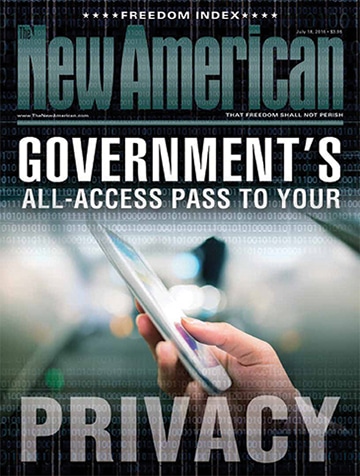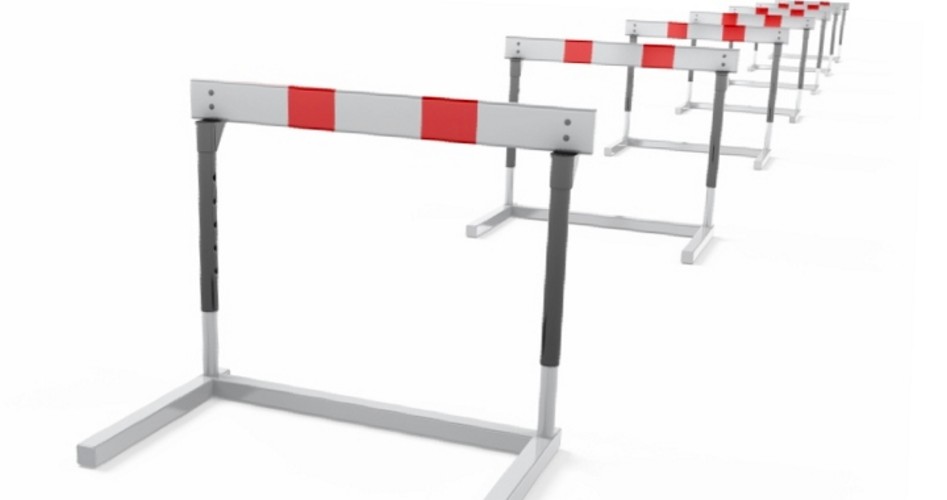Is Gridlock Really a Bad Thing?
Gridlock, we are informed regularly by media and political leaders alike, is the worst of all government deficiencies. When politicians fail to achieve consensus, bills get tabled, legislation gets voted down by entrenched opposing interests, and ink flows from the presidential veto pen, frustrating the progress of good government. That, at least, is the version of events popularized by the political class and their court apologists. What is needed, we are told, is an end to gridlock and a new era of bipartisan cooperation in passing reams of backlogged legislation for a nation in sore need of efficient, responsive leadership.
“Gridlock,” of course, is a modern term, a political metaphor suggestive of the traffic jams that clog the Beltway every morning and evening. Gridlock around all our major cities is certainly a great impediment to productivity. It costs businesses untold millions in lost time to have employees stranded in hours-long commutes. In government, too, metaphoric gridlock has become a watchword for inefficiency. But at the time of the Founding, gridlock was known by another term: checks and balances.
Government is a very different type of enterprise from business. Its purpose is to exercise power — not to make money, produce consumer goods, or even meet the satisfaction of a customer base. Left to its own devices, government seeks to expand, consolidate, and monopolize power. It produces laws that are enforced by magistrates, and can only respond to a crisis or problem in one way: by passing more laws and regulations. And every new law or regulation amounts to an increase, however incremental, of government power.
To understand government, it is vital to understand the nature of political power. It can be considered benign only when exercised in defense of liberty and God-given rights. But wielded even by the best of men, it tends to corrupt. In the same way that a faithful husband and father may be tempted to stray at the sight of a beautiful, provocatively clad woman, so too men of the best professed intentions are forever tempted to abuse any power over others that they may be entrusted with. The reason is that almost all of us suffer in some degree with what the economist Friedrich Hayek called the “Little God” syndrome — that is, we have a desire to force others to be and behave as we think they should, rather than as they think they should. We are quick to judge the choices of others, and quick to condemn and covet what we regard as the ill-gotten gains of those who are wealthier or more successful than we are. And too often, we are tempted to use the coercive power of government to right the wrongs we see in others.
This tendency to abuse power — to remold the world “nearer to the heart’s desire,” in the words of the poet — being almost universal, it is important to constitute government in such a way as to limit the potential for harm. But how?
The Founders employed three strategies to limit the power of government. One was to divide the powers of the government — executive, judicial, and legislative — into three separate branches, as recommended by the political philosopher Montesquieu. This is called — aptly enough — the separation of powers. It is the reason the Constitution created an executive branch (presided over by the president), a legislative branch (which was further subdivided into two chambers, the House and the Senate), and a judicial branch, consisting of the Supreme Court and subordinate federal courts.
The second means of limiting the power of government was to put in place the system of checks and balances already mentioned. The Constitution is rife with such devices, as for example the fact that the president can veto any bill sent to him by Congress — but Congress can override his veto by a two-thirds majority vote. The Supreme Court can rule on both law and case — but Congress can limit its appellate jurisdiction. The president can nominate ambassadors, Cabinet officials, and Supreme Court justices — but they can be rejected by Congress. And so forth. It is checks and balances such as these that make it so hard for legislation to be passed and executive nominees to be confirmed, creating the appearance of inefficiency. But it is this same inefficiency that makes it much more difficult for bad laws to be enacted or usurpation of power to occur.
The third means of limiting government power was to divide it vertically, or in other words, to parcel it out among federal, state, and local authorities. This system, the most important innovation of the Founding Fathers, is called federalism. It means that the federal government is only to have authority over matters enumerated in the Constitution; all others fall under the purview of state and local governments (or are not subject to any government control), as the 10th Amendment makes clear. The federal government being the creation of the separate states and their state governments, it follows that the states are in fact superior in authority to the federal government (de jure if not, in our time, de facto). This is why many states put up robust resistance to federal government activity that they view as unjust or exceeding the boundaries of proper federal authority.
Federalism, the separation of powers, and checks and balances all add up to a government in which cooperation and consensus are difficult. Yet despite all of this, the federal government has managed to grow to gargantuan proportions. How has this happened?
Most government expansion has taken place through usurpation, or avoiding the legal and constitutional way that legislative affairs should be conducted. For one thing, it is now customary for government to raise money by issuing debt via the Treasury and the Federal Reserve system instead of by direct taxation. For another, most of the laws that now control Americans are not passed by elected legislators but by unelected bureaucrats. We call such laws “regulations” and punish people for violating them — yet the Constitution does not authorize Congress to delegate its legislative authority to executive branch regulators, as it has done over the last few decades.
Gridlock is our most important bulwark against repressive government — which is why our leaders revile it and why citizens should welcome it.



